Substance Abuse and Mental Health: Breaking the Cycle
Hey there, young warriors! Today, we’re going to talk about a really important topic – substance abuse and mental health. Now, I know that might sound a little scary or confusing, but don’t worry – we’re going to break it down and make it easy to understand.
First of all, let’s talk about what substance abuse actually means. Substance abuse is when someone uses drugs or alcohol in a way that’s harmful to themselves or others. It can include things like:
- Drinking too much alcohol
- Using illegal drugs like marijuana, cocaine, or heroin
- Misusing prescription drugs like painkillers or stimulants
- Smoking or vaping tobacco or e-cigarettes
Substance abuse is a serious problem that can have a big impact on someone’s physical and mental health, as well as their relationships, schoolwork, and future goals.
The Link Between Substance Abuse and Mental Health
Okay, so what does substance abuse have to do with mental health? Well, it turns out that the two are often closely linked.
Many people who struggle with substance abuse also have mental health issues like depression, anxiety, or trauma. In fact, studies show that about half of people with substance abuse problems also have a mental health disorder.
There are a few reasons why substance abuse and mental health are so closely connected:
Self-Medication
Sometimes, people use drugs or alcohol as a way to cope with difficult emotions or mental health symptoms. For example, someone who feels anxious or depressed might drink alcohol to numb their feelings or help them relax.
While this might seem like a quick fix in the moment, it can actually make mental health problems worse in the long run. Drugs and alcohol can change the way our brains work and make it harder to manage our emotions and behaviors in healthy ways.
Brain Changes
Substance abuse can also change the way our brains work on a physical level. Drugs and alcohol can affect the chemicals in our brains that help regulate our moods, thoughts, and behaviors.
Over time, these changes can make it harder for our brains to function normally without the substance. This can lead to addiction, where someone feels like they need the substance to feel okay or get through the day.
Trauma and Stress
Many people who struggle with substance abuse have also experienced trauma or chronic stress in their lives. This can include things like abuse, neglect, violence, or discrimination.
Trauma and stress can have a big impact on our mental health and make us more vulnerable to substance abuse. We might turn to drugs or alcohol as a way to cope with painful memories or overwhelming emotions.
Breaking the Cycle
So, how can we break the cycle of substance abuse and mental health problems? Here are a few key steps:
Seek Help
The first and most important step is to seek help from a trusted adult or professional. This can be a parent, teacher, counselor, doctor, or therapist.
Asking for help can be really scary and vulnerable, but it’s also incredibly brave. It shows that you recognize that there’s a problem and that you want to do something about it.
Remember, there is no shame in seeking help – in fact, it’s one of the strongest and most courageous things you can do.
Address the Root Causes
To truly break the cycle of substance abuse and mental health problems, we need to address the root causes. This means looking at the underlying issues that might be contributing to the problem, like trauma, stress, or unmet needs.
Working with a therapist or counselor can be a great way to explore these underlying issues and develop healthy coping skills. This might include things like:
- Learning to identify and express emotions in healthy ways
- Developing positive self-talk and self-care habits
- Building healthy relationships and support systems
- Processing and healing from past traumas
Find Healthy Alternatives
Another important step in breaking the cycle is finding healthy alternatives to substance use. This means finding activities and coping strategies that help you feel good and manage stress without turning to drugs or alcohol.
Some examples of healthy alternatives might be:
- Exercise or physical activity
- Creative hobbies like art, music, or writing
- Mindfulness or meditation practices
- Spending time in nature or with animals
- Connecting with friends or loved ones
The key is to find activities that work for you and that you enjoy. It might take some trial and error, but keep exploring until you find what feels good and helps you feel grounded and centered.
Build a Support System
Breaking the cycle of substance abuse and mental health problems is not something you have to do alone. In fact, having a strong support system can make all the difference in your recovery and well-being.
Your support system might include:
- Family members or close friends who you trust and feel comfortable talking to
- A therapist, counselor, or support group
- Teachers, coaches, or mentors who believe in you and want to see you succeed
- Peers who are going through similar struggles and can relate to what you’re going through
Remember, your support system is there to listen, encourage, and help you navigate the ups and downs of recovery. Don’t be afraid to reach out and lean on them when you need to.
Practice Self-Compassion
Finally, one of the most important things you can do in breaking the cycle of substance abuse and mental health problems is to practice self-compassion.
Self-compassion means treating yourself with kindness, understanding, and forgiveness – even when you make mistakes or face setbacks. It means recognizing that you are doing the best you can with the resources and knowledge you have in the moment.
Some ways to practice self-compassion might be:
- Talking to yourself like you would talk to a good friend who was struggling
- Acknowledging your feelings and needs without judgment or shame
- Celebrating your strengths and progress, no matter how small
- Forgiving yourself when you stumble or fall short of your goals
Remember, recovery is a journey, not a destination. There will be ups and downs, good days and bad days. But with self-compassion and a commitment to your well-being, you can keep moving forward and breaking the cycle one day at a time.
Putting It All Together
Phew, that was a lot of information! But I hope you’re feeling more informed and empowered to understand the link between substance abuse and mental health, and to take steps to break the cycle in your own life or the lives of those you care about.
Remember, substance abuse and mental health problems are not a sign of weakness or failure – they are real, complex issues that can happen to anyone. But with the right support, tools, and mindset, recovery is possible.
If you or someone you know is struggling with substance abuse or mental health problems, don’t hesitate to reach out for help. Talk to a trusted adult, call a helpline, or find a local support group or treatment program.
And most importantly, remember that you are not alone. There are so many people who care about you and want to see you thrive – including me! You have so much strength, resilience, and potential within you, and I believe in your ability to break the cycle and create a life of health, happiness, and purpose.
So keep shining bright, young warrior – the world needs your light!




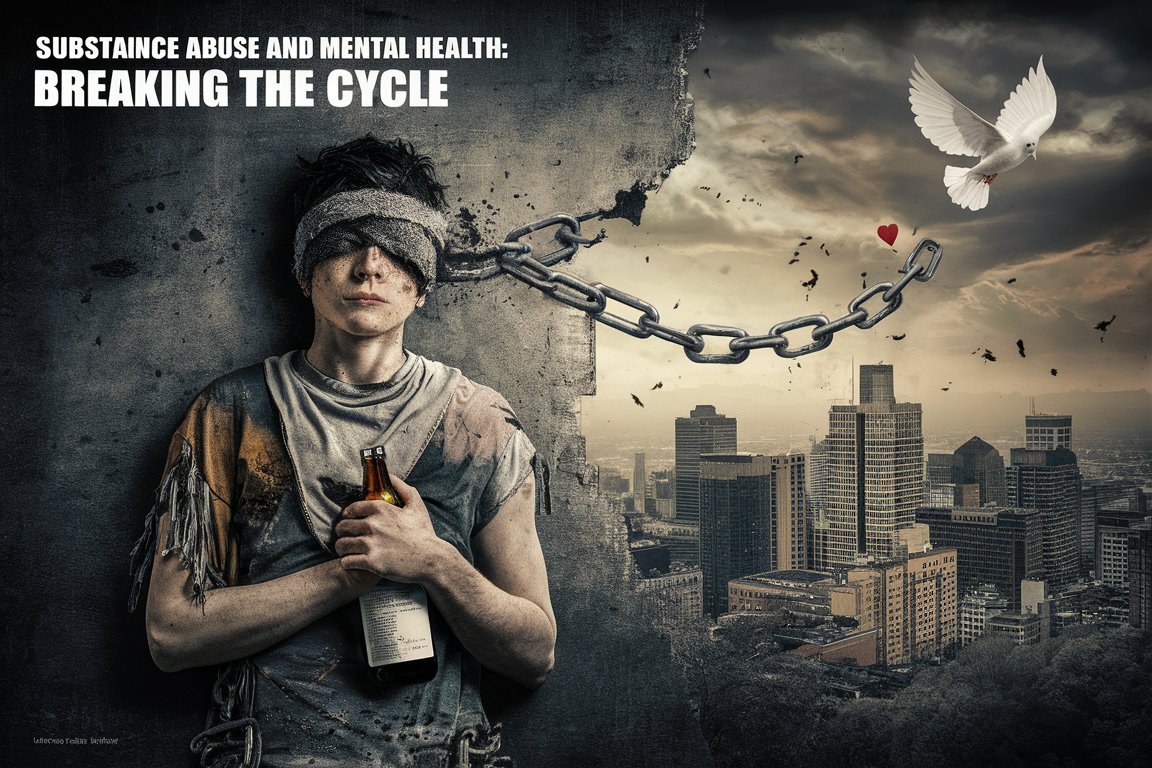




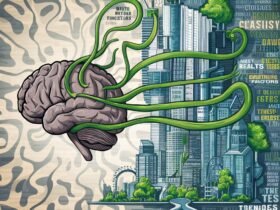
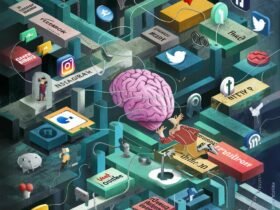
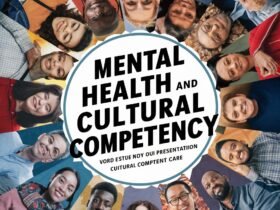
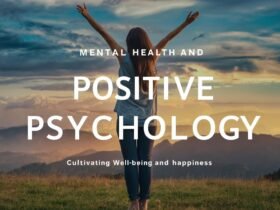
Leave a Reply